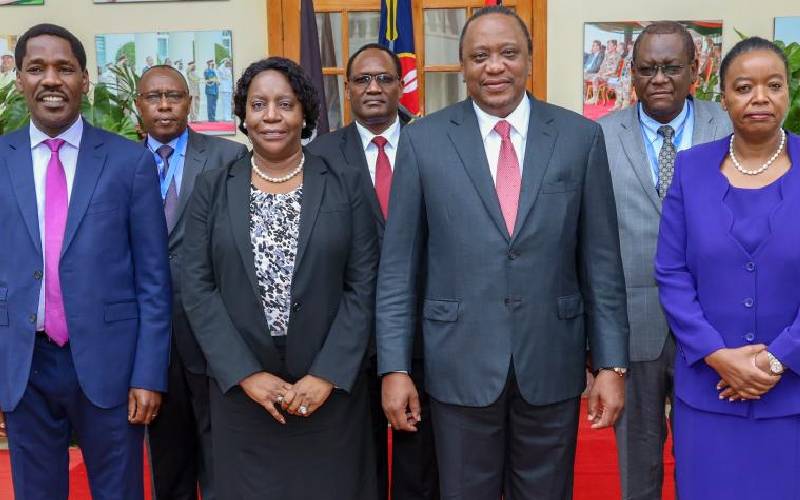President Uhuru Kenyatta with Ms Chileshe Mpundu Kapwepwe, Secretary General Common Market for Eastern and Southern Africa (COMESA) who called on him at State House. More than 250 Kenyan investors trooped to the Democratic Republic of Congo (DRC) earlier this month for a two-week visit to scout for opportunities, highlighting the country’s new economic diplomacy drive.
Organised under the stewardship of the two governments and facilitated by the Equity Group, the trade mission took the Kenyan investors through Kinshasa , Lubumbashi, Goma and Mbuji-Mayi.
It is Kenya’s latest push in its economic diplomacy agenda across the region as it seeks to secure a foothold within the East African Community (EAC). “The vision is of commercial diplomacy,” explained Cabinet Assistant Secretary to the Ministry of Industrialisation, Trade and Enterprise Development Lawrence Karanja.
“We are no longer engaged in the traditional political diplomacy, but what were are looking at here is everywhere we have a vision, what are Kenyans going to get from there? As the government, our main role is to facilitate trade and industrialisation, but the real people to do that work are the private sect,” he added.
DRC is set to join the EAC, a move that is expected to expand Kenya’s regional consumer market, riding on Congo’s more than 100 million residents, a majority of whom are below the age of 25 years.
Equity Group Chief Executive James Mwangi said Kenya’s economic sectors have diversified and matured to the level of exporting both goods and services into regional economies.
“There is a commitment that where our country is now, it can only be transformed by the private sector, and this requires doors to be opened through bilateral agreements with friendly countries so that our goods and services can find it easy to make headway,” he explained.
According to Mr Mwangi, Kenya’s transformation into a regional financial hub as well as investments in telecommunications, healthcare and education have made the country a services export hub.
Covid-19 has also led to a disruption in the global supply chain, meaning African countries that rely on imports from the US and European markets have had to cover the shortfall with local supplies.
Joss Dijimba, founder and CEO of Dijimba, a company that produces packaging materials said the pandemic has underlined the risk of relying on foreign direct investment from the West.
“It feels good to have African investors come to African countries to invest because we are used to people from […]
